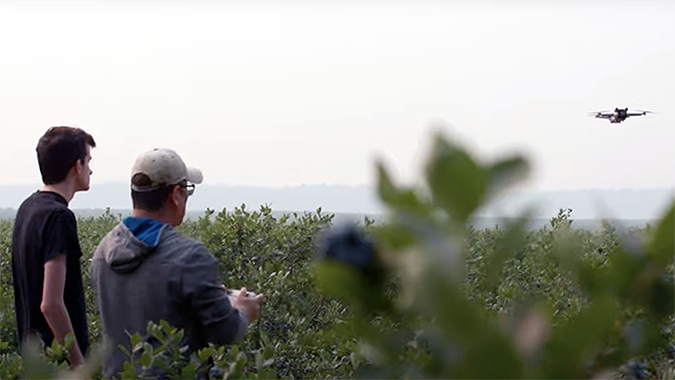Rowan University mathematics professors are working with South Jersey blueberry farmers on a project using drones and artificial intelligence to better estimate crop yields.
Precision agriculture is a fast-growing market that offers new opportunities for problem-solving. The goal is to use drones and mathematical formulas, instead of the time-honored and time-consuming method of having farmers walk their fields, checking the bushes, and making their best guesstimates.
Rowan University mathematics professors Hieu Nguyen, Ph.D., Thanh Nguyen, Ph.D. (no relation) and Ik Jae Lee, Ph.D., began working with farmers on this project several years ago. With assistance from a selected group of five research students, the team uses historical data provided by the farmers to create mathematical formulas, the driving force behind artificial intelligence.
To test their models, the team spends a day early each summer flying drones over a blueberry field to photograph large areas, as well as individual bushes to serve as samples. Afterward, they pick every berry from the sample bushes, sorting and counting them by hand, comparing their results with the algorithm’s estimate based on the images.
The algorithm relies on statistics and the team is only able to collect and count berries on a small number of bushes each season, so this phase of the project will span several years.
“You’re essentially just trying to find the right formula to give you the correct answer,” said Hieu Nguyen, the project’s leader. “It’s all math.”
The project is also designed to help farmers detect diseased blueberry bushes. Last year, the Rowan research team received a two-year $39,000 grant from the New Jersey Department of Agriculture to develop an automated method for identifying individual bushes affected by blueberry scorch, a plant disease spread by aphids.
Go here to watch a video about the project.




